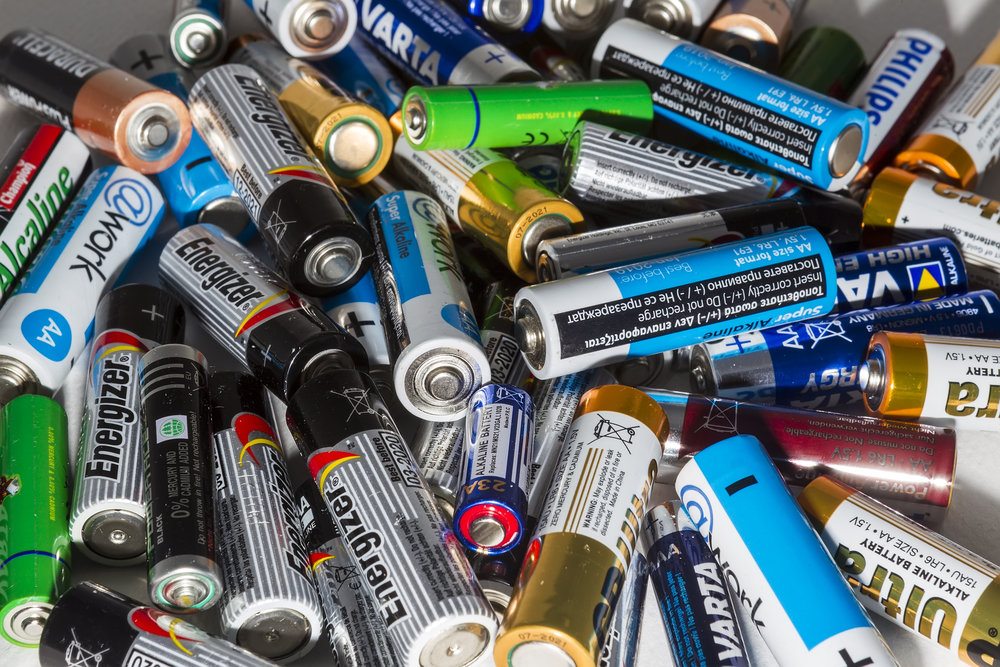
The bills cover a wide range of items, from single-use plastics at lodging establishments to blades for wind turbines. | Ververidis Vasilis/Shutterstock
Washington state legislators sent a handful of recycling-related bills to the governor’s desk recently, including one that would set up an extended producer responsibility program for batteries.
SB 5144 passed out of the Senate on March 7 and the House on April 6. It covers portable batteries and, beginning Jan. 1, 2029, medium format batteries, which are primary batteries weighing more than 4.4 pounds but not more than 25.0 pounds and rechargeable batteries weighing more than 11.0 pounds but not more than 25.0 pounds.
It excludes batteries in medical devices, lead-acid batteries that weigh more than 11.0 pounds and embedded batteries that are not intended or designed to be easily removable with no more than commonly used household tools.
The bill prohibits specific point-of-sale fees to consumers to fund the program, instead requiring each producer or battery stewardship organization to cover the full costs.
It sets a deadline of July 1, 2026, for battery stewardship organizations to submit plans that propose performance goals, education and outreach, collection site safety training procedures, funding, collection strategies and end markets.
The targets set in the legislation are a recycling rate of at least 60% for rechargeable batteries and at least 70% for primary batteries, though no deadline is given in the legislation.
The bill requires at least one permanent collection site within a 15-mile radius for at least 95% of residents and at least one permanent collection site for every 30,000 residents of an urbanized area and for every urban cluster of at least 30,000 residents.
Finally, SB 5144 directs the Department of Ecology to create preliminary policy recommendations for managing electric vehicle batteries by Nov. 30, 2023.
Learn more in person
To keep up to date on the latest nationwide policy developments, join us at the 2023 Resource Recycling Conference (August 14-16 in Orlando, Fla.). We’ve got top-level panels covering the evolution of deposit return systems, the intersection of plastics and EPR, what to expect on the legislative landscape in 2024, and the return of the Policy Talks mini-stage (facilitated by the experts at Eunomia!). Check out the full session lineup and register today.
Other recycling bills
In addition, HB 1033 passed the Senate on April 12. It directs the state Department of Ecology to evaluate compostable product use in Washington by contracting with an independent third-party facilitator to convene a stakeholder advisory committee.
That advisory committee is tasked with making recommendations to the legislature on the development of standards for managing compostable products, especially food service products.
Specifically, the committee must look at the types and amounts of compostable products sold or distributed, consumer confusion caused by non-compostable products, compostable standards for commercial versus home composting and how accepted compostable products are at organic materials management facilities in the state, among other directives.
SB 5287 passed out of the House on April 11, directing the Washington State University extension energy program to conduct a study on recycling wind turbine blades by Dec. 1, 2023.
That includes information on the cost, feasibility and environmental impact of various disposal methods for the blades; the availability of wind turbine blade recycling and processing facilities in Washington and other states; incentives for the creation of blade recycling facilities in the state; mechanisms for establishing recycling requirements or recycled content standards for blades; and options for the design of a state-managed product stewardship program for blades.
The Senate also passed HB 1085, which deals with source reduction, on April 8. The bill is currently on the governor’s desk. It aims to reduce single-use plastic water bottles; prohibit small plastic containers, wrappers and packaging for health and beauty products in lodging establishments; and ban some thin-walled or soft-shell floating expanded plastic foam structures.
The bill requires any new buildings that are already required to have a drinking fountain to also have a bottle-filling station. That section goes into effect on July 1, 2026. The bill also bans, beginning Jan. 1, 2024, the sale and installation of overwater structures containing expanded or extruded plastic foam if the structure is not fully enclosed and contained in a shell made of concrete, aluminum, steel, or plastic with a minimum thickness of 0.15 inches.
Finally, the bill prohibits lodging establishments from providing health or beauty products in small plastic containers, plastic wrappers or any other single-use plastic. This would take effect on Jan. 1, 2027, for businesses with 50 or more lodging units and one year later for smaller businesses. The bill suggests using bulk refillable options, but also notes that establishments may make single-use products available to customers upon request.
Washington’s legislative session ends on April 24.